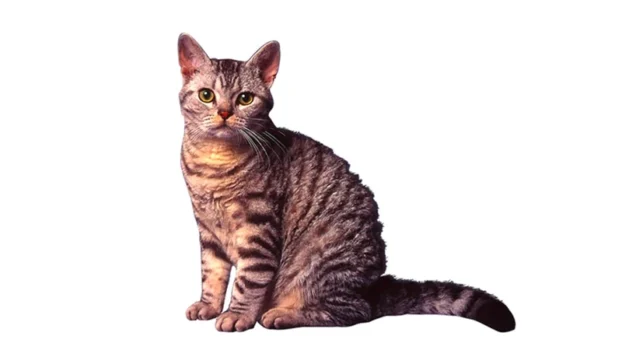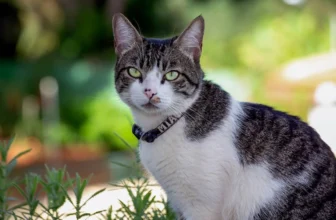As American Wirehair cat owners, we want nothing but the best for our feline companions. Part of providing them with the best care possible is by having them undergo regular health testing. However, interpreting the results of these tests can be daunting and overwhelming, especially for new owners. With so much medical jargon and technical terms, it can be difficult to make sense of what the results actually mean for the health of your cat. But fear not! In this comprehensive guide, we will walk you through the steps of interpreting health test results for American Wirehair cats. From understanding the importance of health testing to talking to your veterinarian, we’ll cover everything you need to know to ensure the best care for your furry friend.
Why Health Testing is Important
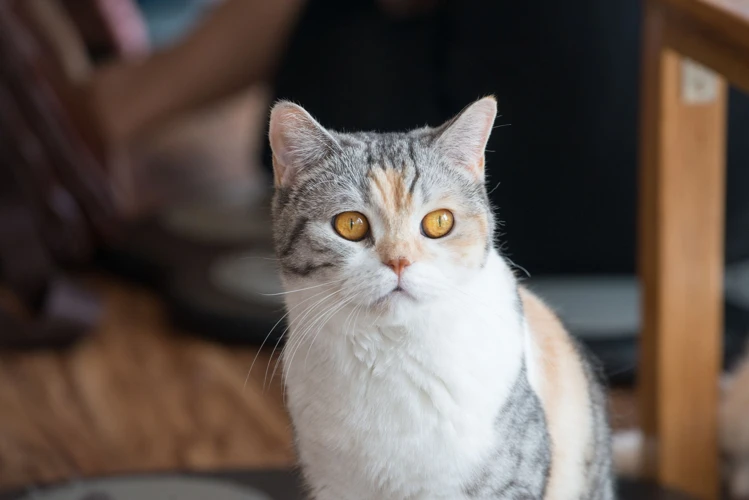
When it comes to our beloved feline friends, keeping them healthy is a top priority for any responsible pet owner. One of the most effective ways to ensure your American Wirehair cat stays in good health is through regular health testing. But why is health testing so important? Through routine testing for various health conditions and genetic markers, owners can catch potential health issues early, make informed breeding decisions, and develop preventative care plans. Let’s explore the many reasons why health testing is crucial for American Wirehair cats. To learn more about health testing for breeding American Wirehair cats visit /health-testing-american-wirehair-breeding/.
Identifying Health Issues Early
Identifying potential health issues early is crucial in mitigating potential dangers to your American Wirehair cat’s well-being. Regular health tests can provide a baseline for comparisons in the future and detect issues that may otherwise go unnoticed. It’s crucial to schedule appointments with your veterinarian for regular check-ups and tests. Apart from this, it’s also essential to keep an eye out for any unusual behavior in your cat, including changes in appetite or activity level.
During the check-up, your veterinarian may conduct an array of tests, including blood tests, urine analysis, and fecal exams. Early detection of issues such as blood concerns, urinary tract infections, or parasites can help prevent future complications.
In some cases, genetics might play a role in American Wirehair cat health issues. Certain breeds have a higher probability of developing specific inherited conditions. If your cat comes from a lineage known to have passed down hereditary conditions, genetic testing might be appropriate. In these instances, your veterinarian may recommend specific genetic tests that can evaluate your American Wirehair’s genetic makeup and potential for developing inherited health issues.
Regular health tests for American Wirehair cats are essential in identifying potential health concerns before they become life-threatening. It is important to keep track of the recommended health check-up schedule; this can differ depending on your cat’s age and specific health requirements. When identifying potential health issues early, it’s always best to consult with a veterinarian for guidance and treatment options, as they have knowledge specific to your cat’s needs.
For more information on the tests used in American Wirehair cat health screenings, please visit our article on health tests for Wirehair cats. If you’re a new owner with questions and concerns, you can visit our kitten health question guides for American Wirehair cats. Our guides provide comprehensive tips for new owners to help them navigate their cat’s health in their new home. Additionally, if you want more information on the role genetics plays in American Wirehair cat health, visit our genetics and American Wirehair health testing guide.
Breeding Considerations
Breeding considerations are an important aspect to consider when interpreting health test results for American Wirehair Cats. As breeding is a crucial factor in maintaining the health and longevity of the breed, it is essential to pay close attention to the genetic health of cats that will be used for breeding. Here are some important factors to consider:
| Factor | Explanation |
|---|---|
| Carrier Status | When reviewing genetic test results, it is important to identify if the cat is a carrier for any conditions that could be passed down to offspring. If a cat is a carrier, it is important to mate them with a cat that is not a carrier to avoid producing offspring with a higher chance of being affected. |
| Phenotype | The phenotype refers to the physical traits of a cat, such as coat color or eye shape. It is important to consider the phenotype of both the male and female cats to ensure that any offspring produced meet breed standards for appearance. |
| Recessive Genes | Recessive genes can be passed down from either parent and can lead to health issues in offspring if both parents carry the gene. When using cats for breeding, it is important to test for any known recessive genes and avoid breeding cats that both carry the same gene. |
| Health History | When considering breeding a cat, it is essential to review their past health history. If a cat has a history of health problems, this could be an indicator that they may pass those issues on to their offspring. It is important to choose cats that have a clean bill of health and no history of genetic health conditions. |
By taking breeding considerations into account, we can ensure that future generations of American Wirehair Cats remain healthy and genetically diverse. It is crucial to work with a reputable breeder who takes genetic health seriously and uses appropriate health testing to ensure their cats are healthy and suitable for breeding.
Preventative Care Planning
The key to maintaining optimal health for your American Wirehair cat is through preventative care planning. Regular visits to your veterinarian and staying up-to-date on vaccinations and health tests can help catch any potential health issues before they become major problems. Here are some preventative care planning measures to consider:
| Preventative Measure | Description |
|---|---|
| Regular check-ups | Scheduling annual check-ups with your veterinarian can help identify any potential health issues before they become serious problems. During these check-ups, your veterinarian will perform a physical exam, discuss any concerns you may have, and recommend appropriate tests or vaccinations. |
| Vaccinations | Keeping your cat up-to-date on vaccinations is critical in preventing diseases. Core vaccinations are recommended for all cats, while non-core vaccinations may be recommended based on your cat’s lifestyle and risk factors. |
| Parasite control | Regular flea, tick, and heartworm prevention is important in preventing the discomfort and potential health risks associated with these parasites. Your veterinarian can recommend a prevention plan that is best suited for your cat. |
| Nutrition | Proper nutrition is important in maintaining optimal health for your cat. Speak with your veterinarian about the best diet for your cat’s specific needs, taking into consideration factors such as age, weight, and any underlying health conditions. |
| Exercise | Encouraging regular exercise can help prevent obesity and maintain muscle mass. Playtime with toys or climbing on a scratching post can provide both physical and mental stimulation for your cat. |
Remember, preventative care planning can help catch potential health issues early, ultimately leading to a longer and healthier life for your American Wirehair cat. Consult with your veterinarian to develop an appropriate preventative care plan tailored to your cat’s specific needs.
Common Health Tests for American Wirehair Cats
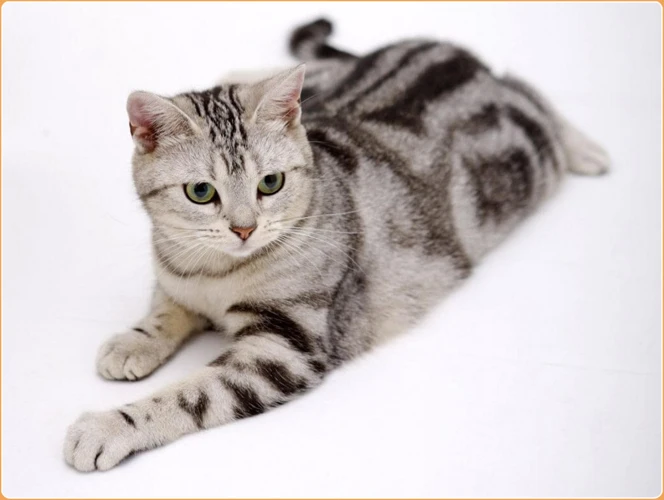
Ensuring the well-being of our American Wirehair feline friends requires diligence and regular health check-ups. Common health tests are an essential part of maintaining their overall health. These tests help to detect potential health problems early, enabling early intervention and appropriate care. In this section, we will discuss the different types of health tests that are commonly conducted on American Wirehair cats and the importance of each one. So, let’s dive into the details and learn how these tests can assist in keeping our furry companions healthy and happy.
Blood tests
Blood tests are a common form of health testing for American Wirehair cats. They can provide valuable information about the cat’s overall health, as well as specific conditions that may be present. There are different types of blood tests that can be performed on cats, including a complete blood count (CBC) and blood chemistry panel.
Complete Blood Count (CBC)
A complete blood count is a test that measures the amount and types of cells in the cat’s blood, including red blood cells, white blood cells, and platelets. A CBC can help diagnose anemia, infection, or inflammation in the body. This test is often performed if the cat is exhibiting symptoms such as lethargy, loss of appetite, or unexplained weight loss.
Blood Chemistry Panel
A blood chemistry panel measures the levels of certain substances in the cat’s blood, including electrolytes, liver enzymes, and kidney function. This test can help identify conditions such as liver or kidney disease, diabetes, or thyroid problems. It can also be used to monitor cats that are on long-term medications, as some medications can cause changes in blood chemistry levels.
To better understand the results of blood tests, it can be helpful to consult with a veterinarian. They can explain what each result means and identify any potential concerns. Here is an example table of normal ranges for a CBC and blood chemistry panel for American Wirehair cats:
| Test | Normal Range |
|---|---|
| Red Blood Cells (RBC) | 5.5-8.5 million cells/microliter |
| White Blood Cells (WBC) | 5,000-19,500 cells/microliter |
| Platelets | 200,000-500,000 cells/microliter |
| Blood Urea Nitrogen (BUN) | 15-30 mg/dL |
| Creatinine | 0.8-2.4 mg/dL |
| Glucose | 70-120 mg/dL |
| Albumin | 3.0-4.5 g/dL |
| Alkaline Phosphatase (ALP) | 25-150 U/L |
It’s important to note that normal ranges may vary depending on the laboratory performing the testing. It’s important to reference the laboratory’s reference range when interpreting results.
Urinalysis
Urinalysis is a process of examining a cat’s urine sample to assess their overall health. There are several parameters that are measured during a urinalysis, including color, odor, specific gravity, and pH. The following table highlights the parameters and what normal and abnormal results could indicate.
| Parameter | Normal Range | Abnormal Result | Possible Implications |
|---|---|---|---|
| Color | Yellow to Amber | Pale or Dark | Pale urine could indicate dilution, while dark urine could signal dehydration, liver disease, or blood in the urine. |
| Odor | Aromatic or Mild | Offensive | An offensive smell could signal infection or other health issues. |
| Specific Gravity | 1.015 to 1.060 | Low or High | Abnormal specific gravity levels could indicate kidney or urinary tract disease, or dehydration. |
| pH | 5 to 7 | Low or High | Abnormal pH levels could indicate urinary tract disease or metabolic disorders. |
It is important to note that there could be variations in the normal range based on various factors, such as age, diet, and activity level. This is why it is important to consult with a veterinarian to understand the test results and what they could imply for your American Wirehair Cat. A urinalysis can also help detect the presence of urinary tract infections, crystals, or stones. If any abnormalities are detected, a veterinarian may recommend further diagnostic testing, such as blood tests or imaging, to identify the underlying health issue and develop an appropriate treatment plan. It is important to address any health concerns promptly to maintain your cat’s health and well-being.
Fecal exams
Fecal exams are an important part of diagnosing health issues in American Wirehair cats. These tests, also known as fecal analyses, involve examining a stool sample for the presence of parasites, bacteria, or other indications of disease. Fecal exams should be performed by a veterinarian at least once a year as part of a routine health checkup, or if your cat displays any symptoms of illness, such as vomiting or diarrhea.
When preparing for a fecal exam, your veterinarian may ask you to collect a small sample of your cat’s stool at home and bring it in for testing. This sample should be fresh and less than 24 hours old. Your veterinarian may also provide you with a collection kit for this purpose.
During the exam, your veterinarian will examine the stool sample under a microscope for the presence of any abnormal substances, such as parasites, bacteria, or blood. If any are found, your cat may be diagnosed with a parasitic or bacterial infection, which can be treated with medication. It is important to note that certain types of parasites, such as tapeworms, may not always be detected in a single fecal exam, so multiple tests may be necessary.
Preventing Parasitic Infections
Preventing parasitic infections in your American Wirehair cat is important for their overall health and well-being. Parasites can cause a range of health issues, from gastrointestinal upset to more serious conditions such as anemia. Here are some tips for preventing these types of infections:
- Ensure your cat’s living space is clean and free of fecal matter.
- Keep your cat’s litter box clean, and clean it daily.
- Ensure your cat’s food and water bowls are cleaned regularly.
- Administer flea and tick prevention medication regularly.
- Consider indoor-only living arrangements to reduce the exposure to outdoor parasites.
With proper preventative measures and regular health check-ups that include fecal exams, your American Wirehair cat can lead a healthy and happy life free of parasitic and bacterial infections.
Genetic tests
Genetic tests are an important tool in identifying inheritable diseases in American Wirehair cats. These tests can reveal if a cat is a carrier or affected by a specific disease. It’s essential to understand that just because a cat is a carrier, it doesn’t mean that they will develop the disease. However, it is problematic if a carrier cat is bred with another carrier, as their offspring is more likely to be affected by the disease.
Here are some common genetic tests for American Wirehair cats:
- Pk Deficiency: This genetic disorder affects red blood cells, causing anemia and in some cases death. Cats can be carriers or affected by this disease.
- HCM: Hypertrophic Cardiomyopathy is a disease that affects the heart muscles and can lead to heart failure. Some American Wirehair cats are genetically predisposed to developing this disease.
- PKD: Polycystic Kidney Disease is a genetic condition where cysts develop in the kidneys, causing kidney failure. It is essential to test for this disease in breeding cats to avoid passing it on to their offspring.
- Blood type: Knowing your cat’s blood type can be life-saving in emergency situations that require a blood transfusion. American Wirehair cats have A, B, or AB blood types.
If your cat has been genetically tested, read the results carefully. In some cases, a cat may be a carrier of a genetic disease but not show any symptoms. If your cat is a carrier, make sure to discuss breeding options with your veterinarian to avoid passing the disease on to their offspring.
It’s important to note that genetic testing isn’t always perfect and can sometimes have false positives or false negatives. False positives occur when the test shows a cat has a genetic disease when they don’t actually have it. False negatives occur when a cat has a genetic disease, but the test shows they don’t have it. Always discuss the results with your veterinarian to ensure accurate interpretation and decision-making.
Genetic testing is an essential tool in preventing the spread of inheritable diseases in American Wirehair cats. By being aware of the genetic diseases affecting this breed and testing appropriately, we can create a healthier gene pool for future generations.
Understanding Health Test Results
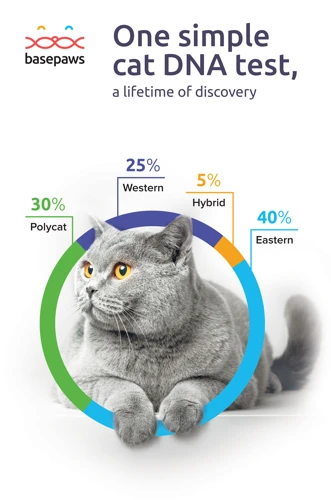
Receiving the results of your American Wirehair cat’s health test can be a complex and puzzling experience. As a cat owner, it’s important to understand the outcomes of these tests to ensure that your cat remains healthy and happy. It’s crucial to have a solid grasp of what health test results mean and how to interpret them accurately. In this section, we’ll delve into the intricacies of understanding health test results and give you the tools you need to navigate your kitty’s medical information with confidence. So grab a pen and paper, and let’s get started!
What is Considered Normal?
When it comes to understanding your American Wirehair Cat’s health test results, one key element to look for is what is considered normal. This can vary based on the specific test being performed, so it’s important to understand the normal range for each test. Here are some examples of what is considered normal for common health tests:
- Blood tests: In general, blood tests in cats are used to check for things like organ function and infection. Normal results will depend on the specific type of blood test being performed, but may include values such as a white blood cell count of 5,500-19,500 cells/microliter or a glucose level of 70-150 mg/dl.
- Urinalysis: Urine tests can provide insight into kidney function and urinary tract infections, among other things. Normal urine should be pale yellow in color and have a pH of 6.5-7.5. Other normal values include specific gravity of 1.015-1.060 and absence of bacteria and blood.
- Fecal exams: Fecal exams are used to check for parasites and other abnormalities in the digestive tract. Normal results should show no evidence of parasites, such as roundworms or hookworms, and no blood or mucus in the stool.
- Genetic tests: Genetic tests can vary widely in terms of what is considered normal. In some cases, there may be no abnormal or normal result, but rather a carrier or non-carrier status. For example, a genetic test for polycystic kidney disease in American Wirehair Cats may show that a cat is either clear, a carrier, or affected with the disease.
It’s important to remember that what is considered normal can also depend on your individual cat’s age, breed, and other factors. Your veterinarian can help you understand what to look for in terms of normal results for your American Wirehair Cat’s specific health tests.
What do Abnormal Results Mean?
When it comes to health test results for American Wirehair cats, an abnormal result can be a cause for concern. It’s important to understand what an abnormal result means and what next steps should be taken.
Abnormal Blood Test Results
Abnormal blood test results may indicate a range of health issues. The below table outlines some common abnormal blood test results and what they may suggest:
| Abnormal Result | Possible Causes |
|---|---|
| High white blood cell count | Infection, inflammation, stress, cancer |
| Low white blood cell count | Viral infection, medication side effects, bone marrow issues |
| Elevated liver enzymes | Liver disease, medication side effects, inflammation |
| Elevated kidney values | Kidney disease |
Abnormal Urinalysis Results
An abnormal urinalysis result may indicate an issue with the cat’s urinary tract or kidneys. The below table outlines some common abnormal urinalysis results and what they may suggest:
| Abnormal Result | Possible Causes |
|---|---|
| Presence of blood | Urinary tract infection, bladder stones, kidney stones, cancer |
| Presence of protein | Kidney disease, urinary tract inflammation |
| Presence of bacteria | Urinary tract infection |
| Abnormal pH levels | Urinary tract infection, kidney disease |
Abnormal Fecal Exam Results
An abnormal fecal exam result may indicate the presence of parasites or other health issues. The below table outlines some common abnormal fecal exam results and what they may suggest:
| Abnormal Result | Possible Causes |
|---|---|
| Presence of worms or eggs | Intestinal parasites |
| Presence of blood | Stress, gastrointestinal bleeding, inflammation, parasites |
| Presence of undigested food | Exocrine pancreatic insufficiency, other digestive issues |
Abnormal Genetic Test Results
Abnormal genetic test results may indicate an increased risk for certain health conditions or genetic disorders. The below table outlines some common abnormal genetic test results and what they may suggest:
| Abnormal Result | Possible Causes |
|---|---|
| Presence of a genetic mutation | Increased risk for inherited disease or disorder |
| Identification as a carrier for a genetic disorder | Increased risk of passing the disorder to offspring |
It’s important to remember that abnormal results do not necessarily mean a cat has a serious health issue. However, they do warrant further investigation and possibly additional testing. Always consult with a veterinarian to determine the best course of action for your American Wirehair cat’s health.
False Positives and False Negatives
False positives and false negatives can occur in health test results, which can create confusion and stress for cat owners. It is important to understand what these terms mean and how they can affect your cat’s health.
False Positives: This occurs when a test result shows the presence of a health condition that is not actually present in the cat. For example, a blood test may show elevated levels of a certain enzyme, leading the veterinarian to suspect liver disease. However, further testing may reveal that the elevation was caused by a recent meal and does not indicate any health issues.
False Negatives: This occurs when a test result shows an absence of a health condition when it is actually present in the cat. For example, a fecal exam may show no evidence of parasites, leading the owner to believe their cat is parasite-free. However, if the test is performed too soon after the cat’s last deworming, it may not detect any remaining parasites.
To better understand false positives and false negatives, refer to the table below:
| Actual Condition Present | Actual Condition Absent | |
|---|---|---|
| Positive Test Result | True Positive | False Positive |
| Negative Test Result | False Negative | True Negative |
As can be seen in the table, a true positive result occurs when a test correctly identifies a health condition that is actually present in the cat. A true negative result occurs when a test correctly identifies the absence of a health condition. False positives and false negatives can occur when a test result is not accurate.
It is important to keep in mind that health test results should not be viewed in isolation. A skilled veterinarian will take into account a cat’s medical history, physical exam findings, and other diagnostic tests to form a complete picture of their health status. By understanding false positives and false negatives, cat owners can better interpret test results and make informed decisions about their cat’s health.
Interpreting Genetic Test Results

When it comes to understanding the health of your American Wirehair cat, genetic testing can be a valuable tool. However, interpreting the results of these tests can often leave cat owners feeling confused and overwhelmed. The intricacies of genetics can be perplexing, and it can be difficult to know what to do with the information that the tests provide. In this section, we will explore some tips and insights for interpreting genetic test results for your American Wirehair cat.
Understanding the Role of DNA
The role of DNA in health testing for American Wirehair cats is key to understanding both the testing process and the results. DNA carries the blueprint for an individual’s genetic makeup, including the traits that can be passed on to offspring. When it comes to health testing, DNA can reveal the presence or absence of certain genetic markers or mutations that are associated with particular health conditions. Here is a list of key points to keep in mind when understanding the role of DNA in health testing for American Wirehair cats:
- DNA is the blueprint for genetic makeup: DNA is a molecule found in the nucleus of cells that not only carries genetic information but also controls the development and function of an individual’s cells, organs, and body systems.
- Genetic markers are clues to inherited traits: Genetic markers are specific areas on a cat’s DNA where variations, or mutations, are linked to particular traits or characteristics.
- Different genetic markers are associated with different health conditions: There are many different genetic markers that have been identified as being associated with certain health conditions, such as heart disease or certain types of cancer.
- Genetic testing can identify the presence or absence of specific genetic markers: By analyzing a cat’s DNA, genetic testing can reveal whether or not a cat carries a specific genetic marker or mutation that is associated with a particular health condition.
- Genetic testing does not provide a guarantee of health: Although genetic testing can provide important information about a cat’s risk for certain health conditions, it cannot predict with certainty whether or not a cat will develop a particular condition.
Understanding the role of DNA in health testing for American Wirehair cats is important for several reasons. By knowing which genetic markers are associated with certain health conditions, cat owners and breeders can make informed decisions about breeding plans and preventative care measures. However, it’s also important to remember that genetic testing is just one tool for assessing a cat’s health, and that regular veterinary checkups and good preventative care are still essential for ensuring the well-being of American Wirehair cats.
Identifying Carrier and Affected Cats
When it comes to interpreting genetic test results for American Wirehair Cats, one important aspect to consider is identifying the carriers and affected cats. Carriers are cats that have a copy of the mutated gene, but do not show any symptoms of the associated disease. On the other hand, affected cats have two copies of the mutated gene and exhibit clinical signs of the disease. It’s important to identify carriers and affected cats to prevent further spread of the disease through breeding.
To identify carriers and affected cats, a genetic test is required. The test results will indicate whether the cat has one copy, two copies, or no copies of the mutated gene. In order to make sense of the test results, it can be useful to create a table to organize the information.
Table: Identifying Carrier and Affected Cats
| Test Result | Clinical Significance |
|---|---|
| Homozygous Normal (NN) | The cat does not carry the mutated gene and will not show clinical signs of the associated disease. |
| Heterozygous (Nn) | The cat is a carrier of the mutated gene, but will not show clinical signs of the associated disease. |
| Homozygous Mutant (nn) | The cat has two copies of the mutated gene and will show clinical signs of the associated disease. Breeding this cat should be avoided. |
As seen in the table, a cat with a homozygous normal (NN) test result does not carry the mutated gene and will not show clinical signs of the associated disease. On the other hand, a cat with heterozygous (Nn) test result is a carrier of the mutated gene, but will not show clinical signs of the associated disease. It’s important to note that carriers can still pass the mutated gene on to their offspring.
A cat with homozygous mutant (nn) test result has two copies of the mutated gene and will show clinical signs of the associated disease. Breeding this cat should be avoided to prevent the spread of the disease to future generations.
Identifying carrier and affected cats through genetic testing can help in making informed breeding decisions and prevent the spread of genetic diseases in the American Wirehair Cat population.
Breeding Considerations for Genetic Markers
When it comes to breeding American Wirehair Cats, genetic testing can play a vital role in ensuring healthy offspring. It’s important to understand the results of genetic tests and how they can affect breeding decisions. The following table highlights the different genetic markers that may be tested for in American Wirehair Cats, and the breeding considerations that come with each result.
| Genetic Marker | Breeding Considerations for Carrier Cats | Breeding Considerations for Affected Cats |
|---|---|---|
| Feline Infectious Peritonitis | Should be bred with normal cats to prevent producing affected offspring. | Should not be bred, as offspring will always be affected. |
| Polycystic Kidney Disease | Should be bred with normal cats to reduce the likelihood of producing affected offspring. | Should not be bred, as offspring will always be affected. |
| Progressive Retinal Atrophy | Should be bred with normal cats to reduce the likelihood of producing affected offspring. | Should not be bred, as offspring will always be affected. |
It’s important to note that not all genetic markers will have a breeding recommendation. Your veterinarian or a genetic counselor can provide more information on the specific markers tested for and what each result means for breeding decisions. By using genetic testing and making informed breeding decisions, we can work towards producing healthy American Wirehair Cats for generations to come.
Talking to Your Veterinarian
As a cat owner, discussing your cat’s health test results with your veterinarian can be overwhelming and intimidating. However, it is crucial to understand the results and their implications for your cat’s health and well-being. In this section, we will explore some tips and questions to ask your veterinarian that can help you gain a better understanding of your American Wirehair cat’s health. Let’s dive in and learn how to have an open and productive conversation with your vet.
Questions to Ask About Health Test Results
When it comes to understanding your American Wirehair cat’s health test results, it can be overwhelming and confusing. To make the process easier, it’s important to have a list of questions to ask your veterinarian. Here are some important questions to consider:
- Can you explain the test results to me in simple terms?
- What exactly am I looking at in the test results?
- Are there any specific concerns I should be aware of based on the test results?
- How often should I have these health tests performed on my cat?
- What can I do to prevent any potential health issues based on the test results?
- Are there any lifestyle changes I should make based on the test results?
- Are there any treatments available for any identified health issues?
- Can my cat’s diet or exercise routine be adjusted to address any health concerns?
Remember: As a cat owner, it’s essential to be proactive and stay on top of your cat’s health. Don’t be afraid to ask questions and seek clarification about your cat’s test results from your veterinarian. It’s important to work together to create a preventative care plan and address any health concerns as soon as possible.
Creating a Preventative Care Plan
After discussing your American Wirehair cat’s health test results with your veterinarian, it’s important to create a preventative care plan to ensure your furry friend stays healthy.
1. Schedule Regular Check-Ups: Regular visits to the veterinarian can help identify any potential health issues early on. Follow your veterinarian’s recommendations for how often to bring your cat for check-ups, which may vary based on age and overall health.
2. Keep Up with Vaccinations: Vaccinations can prevent many common illnesses in cats. Make sure your cat is up-to-date on all recommended vaccinations.
3. Maintain a Healthy Diet: Feeding your cat a well-balanced diet is important for their overall health. Consult with your veterinarian to determine the best diet plan for your American Wirehair cat.
4. Practice Good Hygiene: Regular grooming, including brushing your cat’s fur, cleaning their ears, and trimming their nails, can help prevent infections and other health issues.
5. Keep Your Cat Active: Regular exercise can help your American Wirehair maintain a healthy weight and reduce their risk of certain health issues. Provide your cat with toys and playtime to keep them active.
6. Pay Attention to Changes in Behavior: Be aware of any changes in your cat’s behavior, such as loss of appetite, lethargy, or aggression. These could be signs of illness and should be addressed by your veterinarian.
By following these preventative care measures, you can help keep your American Wirehair cat healthy and happy for years to come.
Conclusion
In conclusion, interpreting health test results for American Wirehair Cats is an essential part of ensuring their overall health and wellbeing. By identifying potential health issues early, you can take proactive measures to prevent them from becoming more severe. Additionally, breeders can use health test results to make informed decisions about which cats to breed and which to remove from their breeding program.
It is important to understand the different types of health tests available for American Wirehair Cats, including blood tests, urinalysis, fecal exams, and genetic tests. Each test provides unique information about your cat’s health and can help identify potential issues that may not be visible to the naked eye.
When interpreting health test results, it is important to understand what is considered normal and what abnormal results may indicate. While abnormal results can be concerning, it is important to keep in mind that false positives and false negatives can occur, so it is best to follow up with additional testing if needed.
Genetic test results can be particularly helpful for breeders, as they can identify carrier and affected cats and help guide breeding decisions. Understanding the role of DNA and how genetic markers are inherited can help breeders make informed choices about which cats to breed and which to remove from their breeding program.
When discussing health test results with your veterinarian, be sure to ask any questions you may have and work together to create a preventative care plan for your cat. This can include regular check-ups, vaccinations, and any necessary dietary or lifestyle changes.
Overall, interpreting health test results for American Wirehair Cats is an important aspect of responsible pet ownership and breeding. By staying proactive and informed, you can help ensure the best possible health and wellbeing for your cat.
Frequently Asked Questions
What is a health test for American Wirehair cats?
A health test for American Wirehair cats is a series of medical exams and laboratory tests performed on cats to assess their physical health and diagnose any underlying health conditions.
Why is health testing important for American Wirehair cats?
Health testing is crucial for American Wirehair cats as it helps identify health issues early, plan preventative care, and make better breeding decisions.
What are the common health tests for American Wirehair cats?
The common health tests for American Wirehair cats include blood tests, urinalysis, fecal exams, and genetic tests.
What are blood tests for American Wirehair cats?
Blood tests for American Wirehair cats are laboratory tests that analyze the blood for various health indicators, such as red and white blood cell count, electrolyte levels, and metabolic function.
What is urinalysis for American Wirehair cats?
Urinalysis for American Wirehair cats is a laboratory test that examines the urine for the presence of abnormal substances that may indicate a urinary tract infection, kidney disease, or other health issues.
What are fecal exams for American Wirehair cats?
Fecal exams for American Wirehair cats are laboratory tests that analyze a stool sample for the presence of parasites, bacterial infections, or other health issues.
What are genetic tests for American Wirehair cats?
Genetic tests for American Wirehair cats are laboratory tests that analyze the cat’s DNA for genetic markers that may indicate inherited diseases or predispositions to certain health conditions.
What do abnormal test results mean for American Wirehair cats?
Abnormal test results for American Wirehair cats may indicate underlying health issues that require further examination, treatment, or preventative care.
What are false positives and false negatives in health testing for American Wirehair cats?
False positives and false negatives in health testing for American Wirehair cats may occur when laboratory tests yield incorrect results due to equipment or procedural errors.
What questions should you ask your veterinarian about your American Wirehair cat’s health test results?
You should ask your veterinarian about the significance of the results, the recommended treatment or care plan, and any future health concerns or considerations for your American Wirehair cat.

